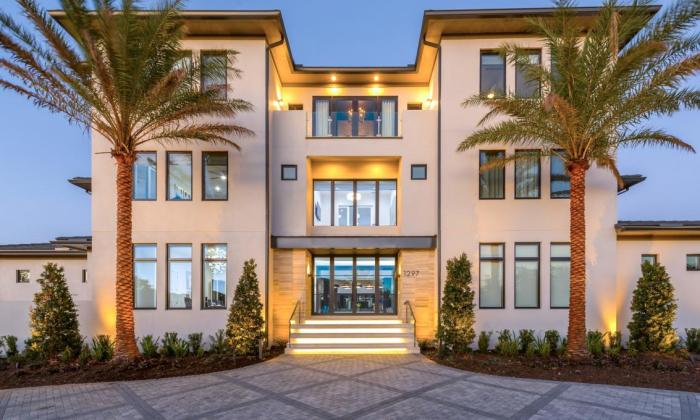A group of Osceola County leaders contends vacation rental homes are safer during the pandemic than most hotels and motels.
The “continued closure of this industry has a ripple effect across our community, and we believe vacation rentals can be safe for travelers because they do not have many of the shared spaces that those staying at hotels share,” reads a letter the group sent to Gov. Ron DeSantis last week.
The group includes Osceola County Commission Chairwoman Viviana Janer, State Rep. Mike LaRosa, John Newstreet, president of the the Kissimmee/Osceola County Chamber of Commerce, and DT Minich, president and CEO of Experience Kissimmee.
“Vacation rentals can easily provide safer lodging, where social distancing is easier to achieve and risk of spreading the virus is less likely,” their letter states.
Osceola’s plea to DeSantis echoes many around the state in support of owners of vacation rental homes, which essentially were shut down to stop the spread of COVID-19.
Hotels, motels and other overnight accommodations such as time-share units have been allowed to remain open, but not vacation rentals.
Exceptions to the vacation rental ban include people staying at least 30 days, commercial travelers and essential workers.
But the industry essentially has been gutted.
Owners in Tampa filed a lawsuit May 7 against DeSantis, claiming their constitutional rights are being violated by his March 27 shuttering all “non-essential” businesses.
“The order does not provide our plaintiffs’ due process of law which is protected under the 4th, 5th, and 14th Amendments,” Patrick Leduc, who represents several vacation rental homeowners, told WFLA News Channel 8 in Tampa.
Some argue that vacation rentals are getting a bad deal from the state because the industry is not represented by lobbyists in Tallahassee, unlike the powerful, well-established lobbies for hotels, motels and resorts.
At Gemstone Properties LLC in Kissimmee, the vacation rental home business has dried up, but new protocols for cleaning, personal protective equipment and time between guests have been implemented.
“As an industry, we’ve adjusted our procedures and are doing disinfecting and sanitizing at a much higher level,” said Owner/Property Manager Holly Orr.
And at least 72 hours must pass between guests departing and arriving, she said.
But for now, nobody’s checking into vacation rental homes managed by Gemstone Properties. Experience Kissimmee, county’s tourism authority, reported last year that the vacation home rental market had grown 470 percent in the previous four years to 22,000 homes.
Most of the vacation homes are located on the western side of the county and are managed by private companies, many of which advertise on AirBnB, Home Away and VRBO.
Neighborhoods designed specifically for vacation rentals – such as Encore Resort at Reunion and Margaritaville – had also increased before the COVID-19 health crisis crushed any business related to vacation or travel.
Commission Chairwoman Viviana Janer said “this sector of tourism is significant for Osceola County.”
On Saturday, the governor issued a new executive order allowing barbershops, hair and nail salons, and other cosmetic service businesses to reopen as part of Florida’s plan to re-open businesses amid the pandemic.
Like the restrictions placed on restaurants when they were allowed to re-open their dining rooms on May 4, there are new rules. Cosmetic service businesses must require employees to wear masks, prohibit walk-in clientele and nix the magazines and decorations from their waiting areas. With nearly 8,000 tests performed, Osceola County is in the target range of the rate of positive tests, according to a county press release.
Roughly 7.1 percent of tests in Osceola have come back positive vs. the 7.6 state average, the county said.
“I am optimistic that this request will get consideration, as the downward trend in the percentage of positive cases continues as more testing opportunities for our residents become available," Janer said.



